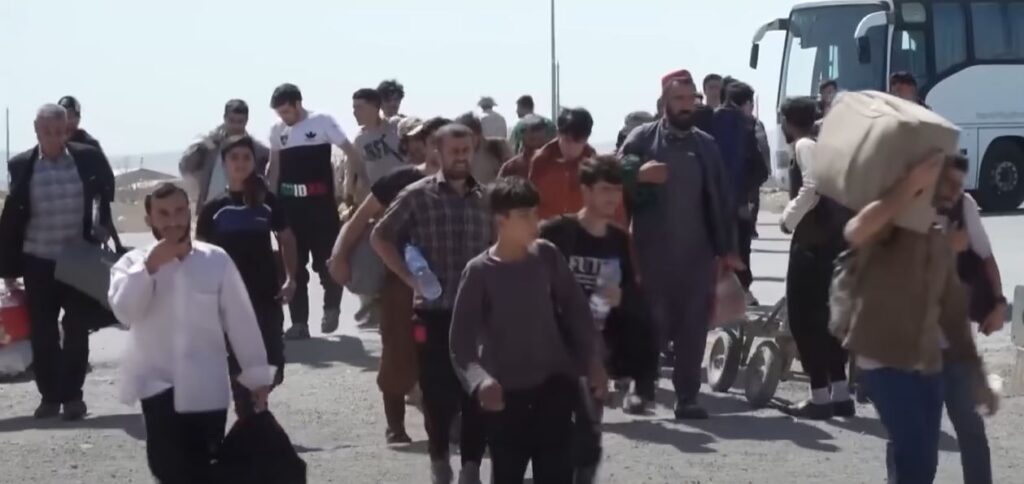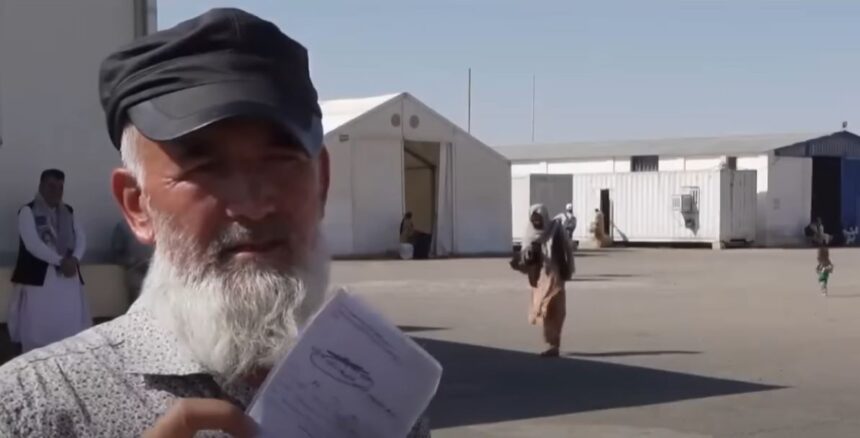Afghan workers in Iran have raised concerns over delayed wages and workplace exploitation. Many report that employers often withhold salaries, leveraging their undocumented status to threaten them with deportation if they voice complaints.
Samimullah, an Afghan laborer working in a pistachio orchard in Kerman Province for over a year, described his ordeal. He told Afghan Insight, “I have been in Iran for a year, having endured a perilous journey through smuggling routes to get here. I work in a pistachio farm, but my employer repeatedly delays my salary under various pretexts. If we push back, they threaten us with consequences. I am now trying to find work elsewhere out of necessity.”
Another Afghan worker, Wali Khan, who has been in Iran for three years, shared similar experiences. Now employed in construction, Wali reported frequent issues with withheld payments. He explained, “I’ve become skilled in construction, but our employers treat us poorly. They’ve withheld much of my salary, saying if I complain, they’ll hand me over to the police. This isn’t just my story—many Afghan workers face the same exploitation because employers know we lack legal documentation.”
Thank you for pointing that out. I’ll revise that section to reflect the dynamics between Iranian authorities and Afghan workers more accurately. Here’s the corrected version:

Systemic Challenges for Afghan Workers
Afghan workers in Iran often face systemic discrimination, with many employers exploiting their undocumented status to withhold wages or mistreat them. Although Iranian authorities have introduced measures to discourage the employment of undocumented workers, these policies primarily target Afghan migrants rather than addressing exploitation. In May, the Iranian government announced fines of approximately 1.2 million tomans (around $20) per day for hiring undocumented foreign workers, effectively increasing the vulnerability of Afghan laborers. Certain provinces, including Yazd, Lorestan, Tehran, Kermanshah, and Tabriz, have even banned Afghan workers from employment in agriculture, manufacturing, and construction sectors, exacerbating their precarious situation.

A Broader Crisis
Iran hosts an estimated six million Afghan refugees, according to Iranian officials. Despite these significant numbers, many Afghan workers in the country remain undocumented, making them vulnerable to exploitation and abuse. Reports suggest that new Afghan migrants continue to cross into Iran daily, fleeing poverty and unemployment in Afghanistan.
Efforts to seek comment from the Iranian Embassy in Kabul regarding these allegations were unsuccessful at publishing.
The issue of Afghan labor in Iran has a long history. Afghans have migrated to Iran for decades in search of better economic opportunities, often taking on low-paying and physically demanding jobs. However, their lack of legal status has left them vulnerable to abuse and exploitation, an issue that persists despite governmental warnings and regulations.





